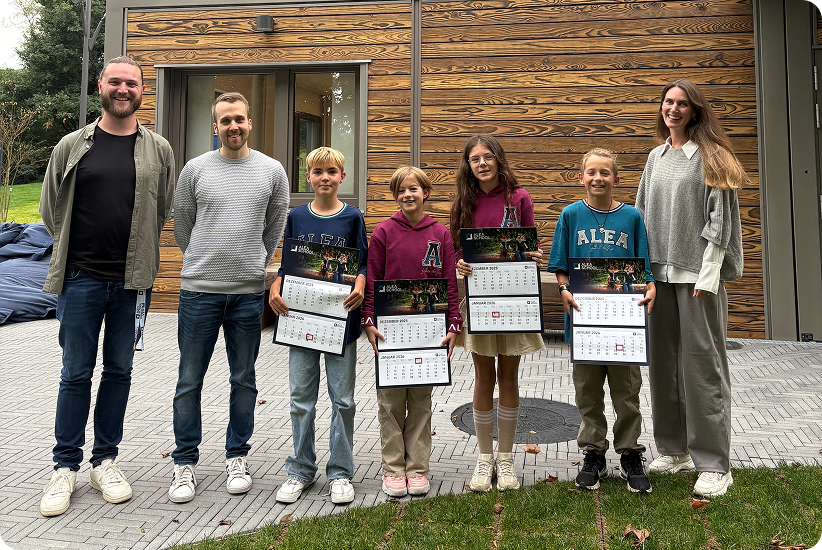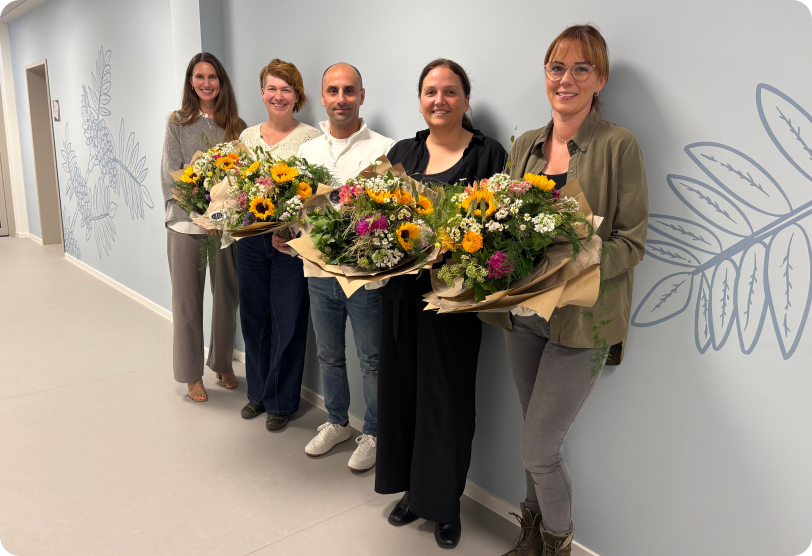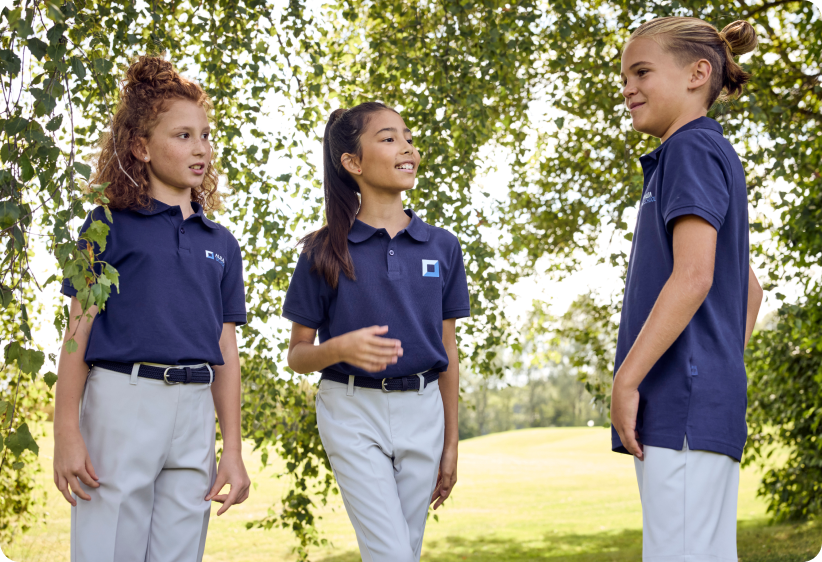At ALEA SCHOOL, we consider school as a collaborative project - that's why parental involvement and engagement, as well as that of our students, are an important part of our school concept from the very beginning. We promote a vibrant culture of participation in which everyone can have their say and help shape things - in keeping with the spirit of an open, democratic, and future-oriented school.

from left to right:
Mr. Wiesen and Mr. Diemel (Department of Social Sciences), Luis Blum (class representative 6), Johanna Wiedersum (deputy class representative 6), Estelle Röll (class representative 5), Hannes Gunia (deputy class representative 5), Ms. Ponti (School principal)
Student council (SC)
The student council gives our students the opportunity to practice participation in a democratic process and develop leadership skills. The students on the student council will be responsible for planning and implementing school events, communicating important information to the school community, and representing the interests of all their fellow students. In addition, the student council acts as a link between the student body and the school management.
Class representatives were also elected for grades 5 and 6. The school representatives are elected in an assembly (meeting of all students) before the fall break.

from left to right:
Ms. Ponti (School principal), Ms. Schreiber (Deputy parent representative for grade 6), Mr. Mildenberger (parent representative for grade 6), Ms. Acker (Deputy parent representative for grade 5 and deputy chair of the school parents’ council), Ms. Ackermann (Parent representative for grade 5 and chairwoman of the school parents’ council).
School parents’ council
The School parents’ council was elected on September 10, 2025.
It represents the interests of parents vis-à-vis the school management and is actively involved in school development processes. The parents’ council plays a central role in the development of our school – for example in organizing school events, further developing our educational concept and addressing school policy issues.

inclusion
ALEA SCHOOL considers itself as a school for everyone – regardless of individual prerequisites or support needs. Accessibility is a key concern for us, not only in terms of building design, but also in terms of education. Step by step, we are creating the conditions for the widest possible accessibility—spatially, linguistically, socially and emotionally. Our inclusion officer, Nadine Adam, a trained special education teacher specializing in inclusive education, supports this process with her expertise, passion, and experience. Together with the school management, the entire school community and external experts – such as the Main-Kinzig District Disability Council – we are consistently developing ALEA SCHOOL into an inclusive school. Our goal: a learning environment in which diversity is considered as enrichment and all learners receive the best possible support to enable them to develop individually.
Inclusion officer:
Nadine Adam | nadine.adam@alea.school
In principle, anyone can apply for a scholarship. The award committee will take various criteria into account when selecting the scholarship holders: First and foremost, the economic eligibility of an applicant family. This is based on the average household income (approx. €70,000) in the Main-Kinzig district and the applicant confirms that they have a lower household income. Voluntary commitment, special achievements or a particularly convincing application are also taken into account.
When applying for a scholarship, applicants must provide basic information, a letter of motivation and a letter of recommendation from a (class) teacher. After submission, the awarding committee will review the application and contact the applicants regarding the next steps.
At the present moment, two scholarship programs have already been confirmed.
Further scholarship programs are currently being developed.
There will be both full and partial scholarships. Depending on the type of scholarship, either all or part of the school fees will be covered by the scholarship. Both scholarship models cover tuition fees up to the 10th grade to the extent indicated.
